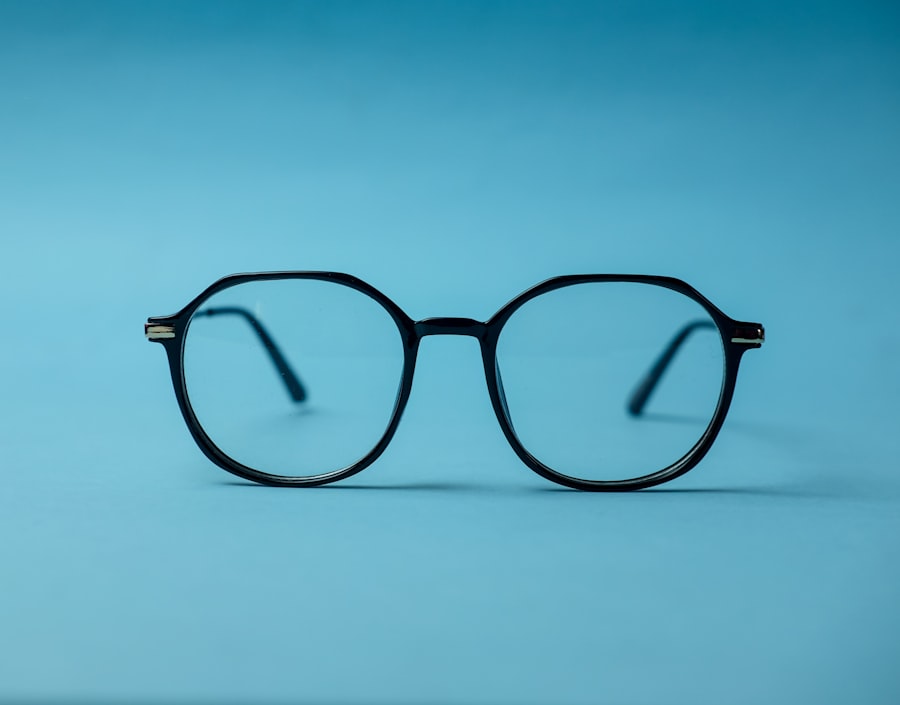In recent years, laser hair removal has emerged as a popular choice for individuals seeking a long-term solution to unwanted body hair.
The appeal of laser hair removal lies not only in its effectiveness but also in the convenience it offers, allowing you to enjoy the freedom of reduced hair growth without the hassle of regular maintenance. As you consider this option, it’s essential to understand how the procedure works, its potential risks, and the precautions you should take to ensure your safety. While laser hair removal can be a game-changer for many, it’s crucial to approach it with a well-informed mindset.
This article will guide you through the intricacies of laser hair removal, focusing particularly on eye safety—a vital aspect that is often overlooked. By the end, you’ll be equipped with the knowledge necessary to make an informed decision about whether this treatment is right for you.
Key Takeaways
- Laser hair removal is a popular method for long-term hair reduction, but it comes with potential risks, especially for the eyes.
- The process of laser hair removal involves targeting hair follicles with concentrated light, which can potentially harm the eyes if proper precautions are not taken.
- Potential risks of laser hair removal include eye damage, such as corneal burns or retinal injury, if the eyes are not adequately protected during the procedure.
- It is important to take precautions to protect the eyes during laser hair removal, such as wearing protective goggles specifically designed for this purpose.
- Signs of eye damage from laser hair removal may include redness, irritation, or vision changes, and it is important to seek medical attention if any concerns arise.
How Laser Hair Removal Works
Laser hair removal operates on a straightforward yet sophisticated principle: it uses concentrated beams of light to target and destroy hair follicles. When you undergo this treatment, a trained technician directs a laser at the area of your skin where unwanted hair is present. The pigment in the hair absorbs the light energy emitted by the laser, which then converts into heat.
This heat damages the hair follicle, inhibiting future hair growth while leaving the surrounding skin unharmed. The process is efficient and can be performed on various body parts, including the face, legs, underarms, and bikini line. The effectiveness of laser hair removal largely depends on several factors, including your skin type, hair color, and the specific technology used during the procedure.
Generally, individuals with light skin and dark hair tend to see the best results because the contrast allows the laser to target the pigment more effectively. However, advancements in technology have made it possible for people with different skin tones and hair colors to benefit from this treatment as well. Typically, multiple sessions are required to achieve optimal results, as hair grows in cycles and not all follicles are active at the same time.
Potential Risks of Laser Hair Removal

While laser hair removal is generally considered safe when performed by a qualified professional, it is not without its risks. As with any cosmetic procedure, there are potential side effects that you should be aware of before committing to treatment. Common side effects include temporary redness and swelling in the treated area, similar to what you might experience after a mild sunburn.
These symptoms usually subside within a few hours or days. However, in some cases, more severe reactions can occur, such as blistering or changes in skin pigmentation. Another risk associated with laser hair removal is the possibility of scarring or skin texture changes.
Although rare, these complications can arise if the procedure is not performed correctly or if proper aftercare is not followed. It’s essential to choose a reputable clinic with experienced technicians who use FDA-approved equipment to minimize these risks. Additionally, discussing your medical history and any skin conditions with your provider can help ensure that you are a suitable candidate for laser hair removal.
Can Laser Hair Removal Affect Your Eyes?
| Question | Answer |
|---|---|
| Can laser hair removal affect your eyes? | Yes, if proper eye protection is not used during the procedure, the laser light can potentially harm the eyes. |
| How to protect the eyes during laser hair removal? | Special goggles or eye shields should be worn to protect the eyes from the laser light. |
| What are the potential risks to the eyes? | Potential risks include damage to the cornea, retina, or other parts of the eye, leading to vision problems. |
| Is it safe to get laser hair removal near the eyes? | Laser hair removal near the eyes should only be performed by a trained professional with proper eye protection in place. |
One aspect of laser hair removal that often goes unnoticed is its potential impact on your eyes. The lasers used in this procedure emit intense light that can be harmful if it comes into direct contact with your eyes. While most clinics take precautions to protect your eyes during treatment—such as providing protective eyewear—it’s crucial for you to be aware of this risk and take it seriously.
The bright light from lasers can cause temporary vision disturbances or even more severe damage if proper safety measures are not followed. If you have any pre-existing eye conditions or concerns about your eye health, it’s essential to discuss these with your technician before undergoing treatment. They can provide guidance on how to protect your eyes effectively during the procedure and may recommend additional precautions based on your individual circumstances.
Being proactive about your eye safety will help ensure that your experience with laser hair removal is both effective and safe.
Precautions for Protecting Your Eyes During Laser Hair Removal
To safeguard your eyes during laser hair removal, several precautions should be taken both by you and the clinic staff. First and foremost, always wear protective eyewear provided by the clinic during your treatment sessions. These goggles are specifically designed to shield your eyes from harmful laser light and should fit securely to prevent any light leakage.
Make sure that the eyewear is in good condition and properly fitted before beginning the procedure. Additionally, it’s wise to communicate openly with your technician about any concerns you may have regarding eye safety. They should be able to explain their protocols for protecting your eyes and answer any questions you might have about the procedure itself.
If you have a history of eye problems or are particularly sensitive to light, don’t hesitate to voice these concerns; a reputable clinic will prioritize your safety and comfort throughout the process.
Signs of Eye Damage from Laser Hair Removal

While serious eye damage from laser hair removal is rare when proper precautions are taken, it’s still important for you to be aware of potential signs that something may have gone wrong. If you experience any sudden changes in vision following your treatment—such as blurriness, flashes of light, or difficulty focusing—seek medical attention immediately. These symptoms could indicate damage that requires prompt evaluation by an eye care professional.
Other signs of eye damage may include persistent discomfort or pain in or around your eyes, excessive tearing or dryness, or unusual sensitivity to light. If you notice any of these symptoms after undergoing laser hair removal, don’t hesitate to reach out for help. Early intervention can make a significant difference in preventing long-term damage and ensuring that any issues are addressed promptly.
Seeking Medical Attention for Eye Concerns
If you suspect that you may have sustained eye damage due to laser hair removal or if you experience any concerning symptoms post-treatment, seeking medical attention should be your top priority. An eye care professional can conduct a thorough examination to assess your condition and determine whether any treatment is necessary. They may perform tests to evaluate your vision and check for any signs of injury or irritation.
In some cases, treatment may involve simple measures such as lubricating eye drops or anti-inflammatory medications to alleviate discomfort. However, more severe cases may require additional interventions or monitoring over time. Regardless of the severity of your symptoms, it’s crucial not to ignore any changes in your vision or eye health following laser hair removal; prompt action can help prevent complications and ensure a better outcome.
Ensuring Safety During Laser Hair Removal
In conclusion, while laser hair removal offers an effective solution for unwanted hair growth, it’s essential to prioritize safety throughout the process—especially when it comes to protecting your eyes. By understanding how the procedure works and being aware of potential risks, you can make informed decisions about whether this treatment is right for you. Always choose a reputable clinic with experienced professionals who prioritize patient safety and adhere to best practices.
Taking precautions such as wearing protective eyewear and communicating openly with your technician will further enhance your safety during treatment. Should any concerns arise regarding your eye health after undergoing laser hair removal, don’t hesitate to seek medical attention promptly. With proper care and attention to safety measures, you can enjoy the benefits of smooth skin while minimizing risks associated with this popular cosmetic procedure.
There is a lot of concern about the safety of laser hair removal, especially when it comes to the eyes. According to a recent article on inlaserhairremoval.com, it is important to take precautions when getting laser hair removal near the eyes to avoid any potential damage. It is always best to consult with a professional before undergoing any laser treatment to ensure the safety of your eyes.
FAQs
What is laser hair removal?
Laser hair removal is a cosmetic procedure that uses a concentrated beam of light (laser) to remove unwanted hair. The laser targets the pigment in the hair follicles, damaging them and inhibiting future hair growth.
Can laser hair removal affect the eyes?
Yes, laser hair removal can affect the eyes if proper precautions are not taken. The intense light from the laser can potentially cause damage to the eyes if they are not adequately protected during the procedure.
How can the eyes be protected during laser hair removal?
To protect the eyes during laser hair removal, both the patient and the practitioner should wear appropriate eye protection. This typically involves wearing special goggles that are designed to shield the eyes from the laser light.
What are the potential risks to the eyes during laser hair removal?
The potential risks to the eyes during laser hair removal include damage to the cornea, retina, or other parts of the eye from exposure to the intense laser light. This can result in vision problems or even permanent eye damage if proper precautions are not taken.
Are there any specific eye conditions that may increase the risk of eye damage during laser hair removal?
Yes, individuals with certain eye conditions, such as retinal disorders or a history of eye surgery, may be at an increased risk of eye damage during laser hair removal. It is important for individuals with pre-existing eye conditions to discuss their medical history with the practitioner before undergoing the procedure.





